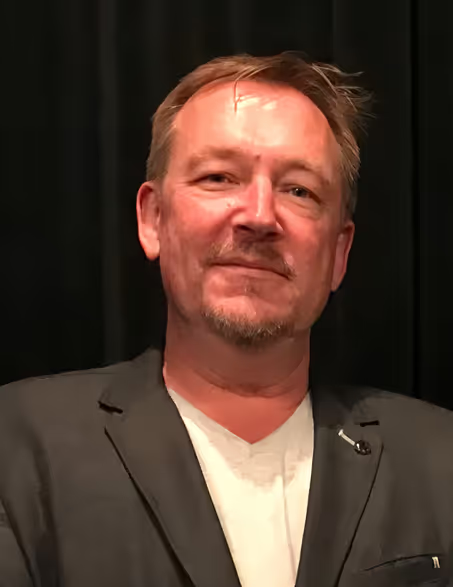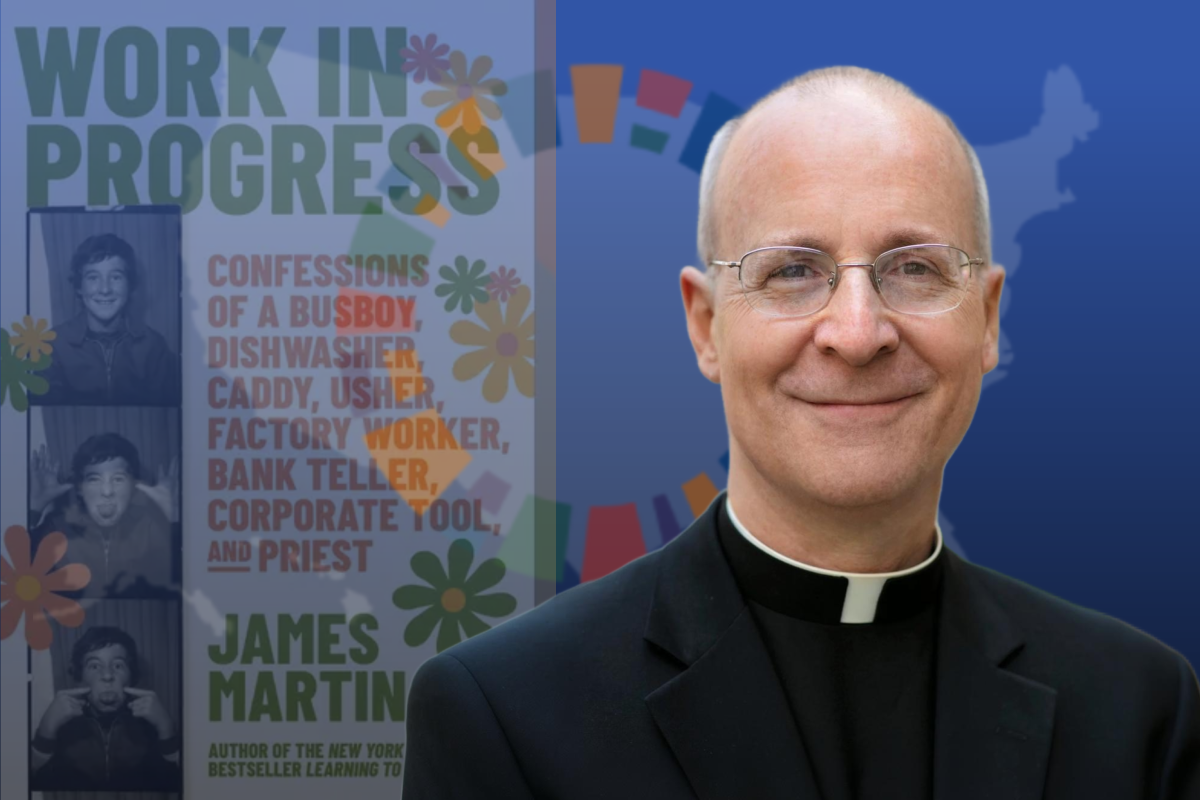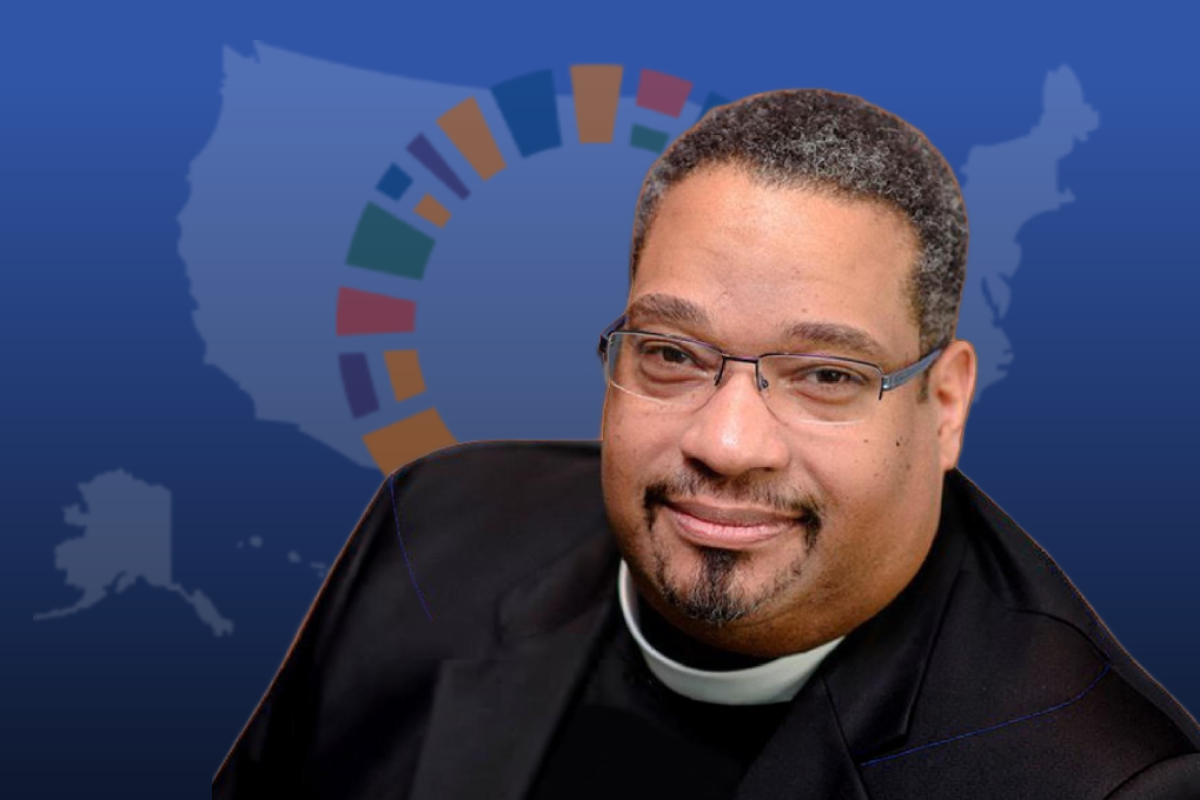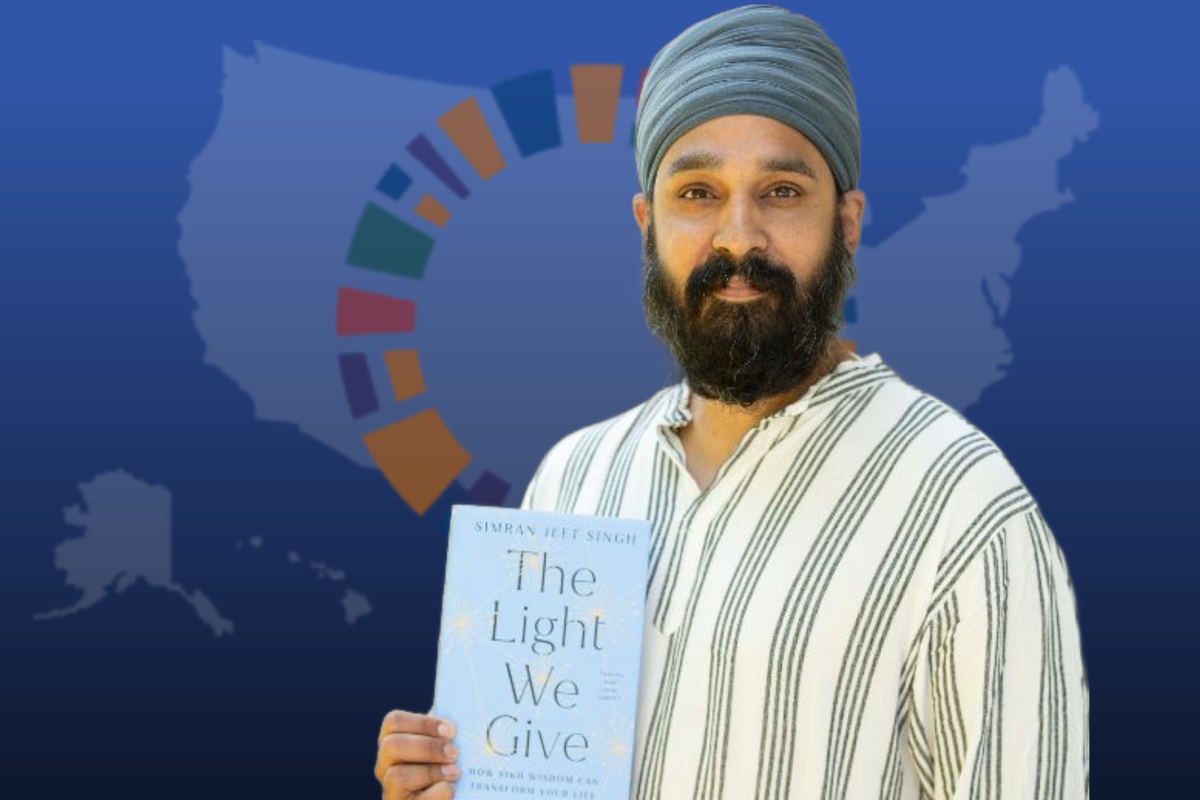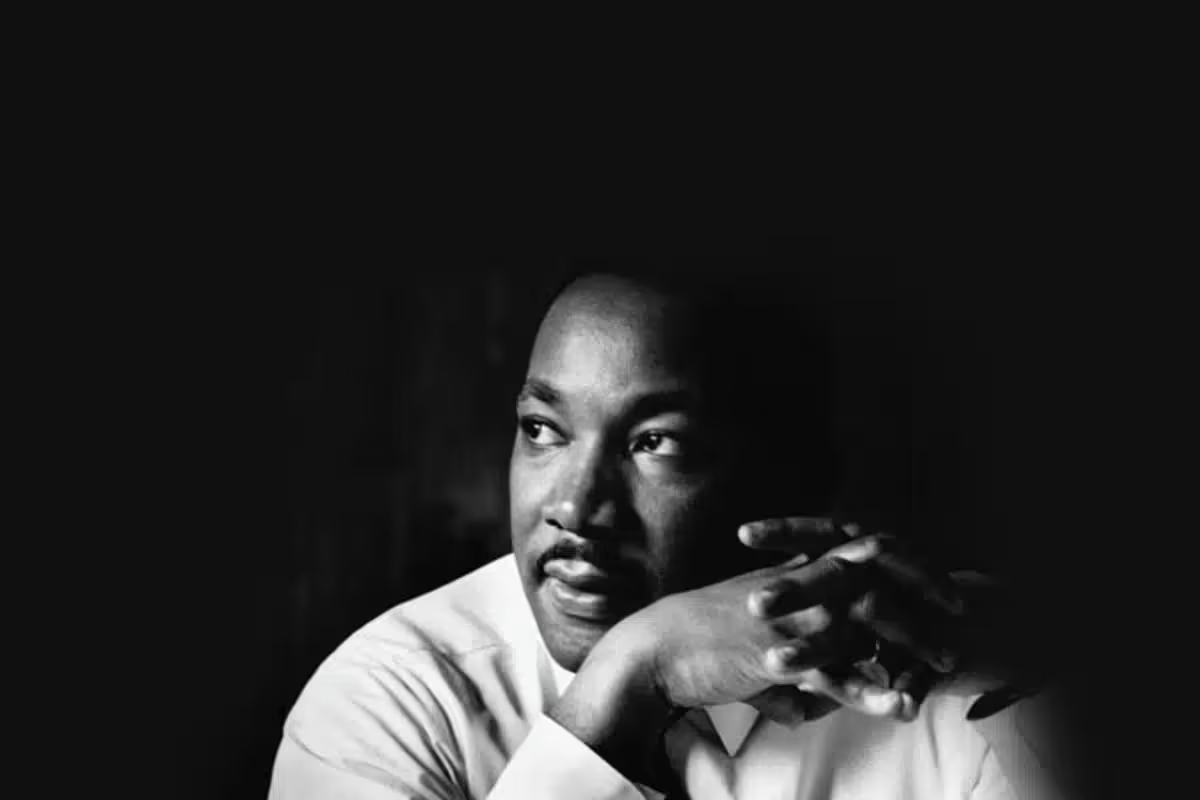
State of Belief
King's Non-Violence Trumps Christian Nationalism
This week, we focus on the confluence of the inauguration of Donald Trump on the day we observe Martin Luther King Day, January 20th. Host Rev. Paul Brandeis Raushenbush brings attention to the dichotomy of these two pivotal events, reflecting on the contrasting paths that America finds itself on—one leading towards justice, equality, and liberation, as exemplified by Dr. King, and the other toward Christian Nationalism, which advocates for privilege, power, and exclusion. He also offers some suggestions for how we can all respond to this moment by taking action in our local communities. Paul is then joined by Jeanné Lewis, CEO of Faith in Public Life, to discuss the need for moral clarity and compassion in the face of division, particularly in the context of Dr. Martin Luther King Jr.'s legacy. In this deeply reflective and insightful conversation, Paul and Jeanné touch on themes of faith, social justice, interfaith collaboration, self-care, and the ongoing struggle for racial and economic equality.
"I think a big part of what we're facing right now as a nation is that question, why should I still love my neighbor as I'm called to do? And for folks who are listening, I think the answer is we must do that because that is who we are. And we have to listen and understand as much as we can where people are coming from, why they hold the beliefs they do, and why they're making the choices they do… When we listen, we hear that a lot of people are voting for nationalist ideals or authoritarian ideals because they feel unheard, because they feel unseen, and because they are afraid. And that fear is very, very powerful. And when we listen to leaders like Dr. King and John Lewis and other folks who came before us, we see very much that engaging people's fear with compassion while still speaking the truth about another vision and what needs to happen can be very transformative."
Jeanné Lewis, CEO at Faith in Public Life. She is a nonprofit executive, faith-based organizer, and authority on creating empowered communities. Jeanné has dedicated her career to building bridges, closing equity gaps and creating policies that lead to strong, thriving and self-determined cities.
Please share this episode with one person who would enjoy hearing this conversation, and thank you for listening!
Transcript
REV. PAUL BRANDEIS RAUSHENBUSH, HOST:
As we anticipate the observance of Martin Luther King Day on January 20th of 2025, I wanted to get the insights of Janae Lewis, CEO at Faith in Public Life. The organization has long taken the lead in fighting racial and economic injustice in America and doing it in the name of faith-driven values. Janae is a faith organizer and authority on creating empowered communities who has dedicated her career to building bridges and closing equity gaps, which is exactly who we need to hear from as the observance of Martin Luther King Day coincides with the inauguration of Donald J. Trump. So, Janae Lewis, welcome to The State of Belief.
JEANNÉ LEWIS:
Thank you, Paul. It's a pleasure to be here.
PAUL RAUSHENBUSH:
So I'm just so excited to speak with you. We had the honor of participating in a vigil together around January 6th, and I had just the pleasure and just so inspiring to hear you talk about your own background, your own faith tradition in a very personal way as you approached this very serious day of January 6th and all that we were you know, thinking about and remembering on that day. I was wondering if we could start out there a little bit about your own background around your own faith tradition and how you made it yours.
JEANNÉ LEWIS:
Yeah. So I grew up Roman Catholic. I'm a cradle Catholic, born in the Washington, D.C. area. And my mother's side of the family is also Catholic. But I was exposed to different denominations of Christianity very early in my life. My grandmother left the Catholic Church and founded a Protestant non-denominational church shortly before I was born. So in the summers when I visited her, I was a member of her church community and I went to Catholic Mass. And I went to a Baptist Christian elementary school from kindergarten to sixth grade. So I was exposed to Baptist Christian practices and traditions very early as well.
And I think those formative experiences are a big part of what informs how I live my faith today. Because as a child, I could see that people identified with different denominations or different labels of their faith, but there were so many commonalities and so many through lines. And I've had a lot of other experiences with other communities throughout my life, with Jewish communities and Muslim communities, Hindu communities. But I see that theme coming back over and over. Regardless of the name of our religion, regardless of the denomination or the particular terms we use, there are so many shared values and so many shared practices all pointing us to the divine. And I try to bring that lens to the work we do here at Faith in Public Life.
PAUL RAUSHENBUSH:
Yeah, you know, I'm eager to hear more about Faith in Public Life and how you all are, as an organization, approaching this. this time we're entering into. But one of the things I really am trying to put forward as a value that, you know, many of us are talking about and have been for a long time is, you know, self-care. And I think one of the things that you talked about in your, you know, talk on January 6th, but also just I know you value is like making sure we're caring about ourselves. Like there is a lot that's coming at us already and more to come. And earlier in the program, I was really talking about, you know, to our listeners about taking care of ourselves, because this is going to, you know, it's the onslaught is almost a strategy. You know, and I just would love to hear for you, like, you know, from your faith tradition or any other sources of care, what are you looking towards to make sure that Jeanette Lewis is able to not only survive but thrive in this difficult time.
JEANNÉ LEWIS:
You're absolutely right, Paul. The onslaught and the pacing of change and chaos is in itself a tactic. For me, I am really drawn to Christian mystic practices. So as a Roman Catholic, I think my first introduction to a Christian mystic practice is the rosary. My grandmother said the rosary every single day. But anything that allows us to practice silence and really listen to God in that silence through our prayer, for me, is very, very healing. And it helps not only to spiritually ground me, but even physically and mentally ground me. Turning off the screens, turning off, you know, the podcast, the radio, and really sitting still, even if it's just for a few minutes a day, is really critical. I also think it's important in this time for us to be gracious with ourselves, to be gentle with ourselves.
I know that so many of us want to make the world a better place. We work day and night to make the world a better place. But the work that we do is larger than any one of us individually. And I think I am constantly trying to get better at getting myself grace about what I'm able to do in a given day, at a given hour, and really understanding the impact of what I do is being connected to people who came before me and people who came after me. And that's a little bit of what I was talking about on January 6th. I think understanding our role and that bigger arc of history and that bigger perspective makes it more manageable for me, and that helps me to continue moving forward.
PAUL RAUSHENBUSH:
God, I love that. It is so important, you know, because it's like, oh, it's all resting on my shoulders. What do I have to do? I have to do it. I have to do it. And I think, you know, I think especially women and especially Black women in a position like yours feel so much weight of the responsibility. And I think being gracious with yourself and espousing that as a value a part of the movement that, you know, interfaith movement or social justice movement, civic movements, I think, gosh, that's going to carry us a long way. And being gracious with ourselves is a mechanism also to be gracious with others. You know, I mean, being in the world is kind of both a constant state of being incredibly inspired and incredibly disappointed. with, you know, with the, with family, with friends and with like, you know, society around.
And so being gracious, how, you know, how can we be gracious with others if we can't be gracious with ourselves and give ourselves a break? I mean, it is true. Like I beat myself up so much. And it's like, whoa, who's helping? I honestly like I started like having a name like almost like it's almost like this weird sadism like that I do to myself like, oh, you you're wrong. You know, you it's I mean, I'm being I'm oversharing probably, but it is I think a lot of us who are trying to accomplish something. And artists do it to themselves. All of us try to do it. I think it's actually like, you know, it's something that we really need to be cognizant of. So I really appreciate you bringing that up. And also the mysticism and the making space. for hearing that voice. And that is a very wonderful Catholic contribution. And I'm gonna misplace it, but this, at the base, all is well, all is well. I think it's Hildegard of Bingham, and just like allowing ourselves to hear that from God, even as we do the hard work, knowing that around us, there's so many things that do need to change.
JEANNÉ LEWIS:
Yeah, and I would say it is, I mean, I think Catholicism has many examples, many saints who practice that, but I love seeing that through line across religion and, you know, this concept that I have to do my part and my part is connected to others' parts throughout history. You see that in Judaism, you see that in Slav, you see that in Buddhism. I think, you know, my experience has been Catholic, but, you know, leading an interfaith organization, I easily see mystical practices, that practice of forgiveness, kindness, graciousness. I see it all the time throughout other religions, too. So when I see that pattern, it tells me that there's a deeper truth there and the voice of God is there. And so I think that's an invitation for us to listen carefully.
PAUL RAUSHENBUSH:
Oh, my goodness. And it's it's one of those wonderful dividends of interfaith work where all of a sudden you're like, oh, my God, that's so good what you're saying, you know, and I didn't know about that at all. You know, it really is like it's it's such a, you know, one of the reasons that this is this work is is such a blessing is, you know, expanding our sense of spiritual resources, just being aware of them, if not immediately practicing them. So so I do want to get into this kind of crazy whiplash feeling of having, you know, the inauguration of Donald Trump and all that is already happening with that. On the same day as we remember the legacy of Dr. King and, you know, as we've talked about it with many people on this program, Dr. King also was not alone. He was part of a big understatement, a huge understatement.
So it's almost like the many, many women and men who were around Dr. King, including his wife, Corinna Scott King, but also just the many women and men activists, women and men religious leaders from all different traditions, by the way, religious traditions. So we can, you know, in some ways like trying to acknowledge both of those things at the same time is this, you know, weird, you know, how are you handling that? Like that, you know, I think it's a blessing, in fact, that we have the Dr. King, that we're being reminded of Dr. King exactly on the day. when Donald Trump is coming in with all his chaos and nonsense. But curious how you're understanding, you know, the broader message of King in light of what we're experiencing today.
JEANNÉ LEWIS:
I think you said part of it. I think you said part of it, because both with the commemoration of Dr. King's legacy and with the inauguration of Donald Trump, these are moments that are being acknowledged on a particular day, but both of those events and the dynamics around them carry across generations, quite frankly. And so if we understand the legacy of Dr. King or if we understand the inauguration of Donald Trump as individual instances, we're missing the vast majority of what it means. I think that January 20th this year is an opportunity for so many of us. We are at a turning point in our nation's history. And Dr. King lived during a time where our nation was also at a major turning point. that was filled with uncertainty and filled with fear in a lot of ways, fear of change, fear of difference, and quite frankly, fear of violence.
And we have been seeing an increase in political violence and division over the last few years, just as Dr. King was experiencing it. and the communities that he served. So I think the 20th is an opportunity for us as faith leaders to live into our responsibility to be voices of moral clarity, just as Dr. King was, and to guide our communities towards accountability and seeking reconciliation. I don't think you can have reconciliation without accountability, but too often we separate them, we create a false binary, and it is possible to have both. And I think Dr. King is a beautiful example of how we can work towards both at the same time.
PAUL RAUSHENBUSH:
The moral clarity piece. You know, I mean, this is the, this is part of the trick right now because also because of like all the different things and because of the way information is being received and being put out there in ways that are intentionally disorienting and intentionally smudging the line of what is moral and what is immoral. I just want to underscore how important that is. in knowing, you know, that there is a right and wrong here. Like, we're not crazy, because there's like crazy making. I really appreciate you lifting that up. And I do appreciate the, you know, lifting up voices who have moral clarity right now. And that is, you know, faith leaders, artists, all the usual folks who have said the real thing in times when, you know, when it needed to be said.
And so I really appreciate that. Let's talk about faith and public life right now and just a little bit about, you know, this really important organization and how you are imagining your, you know, I don't want to say response because it doesn't have to be reactive, like how you're imagining putting forward, still your vision and what you are hoping for this moment.
JEANNÉ LEWIS:
Yeah. Well, Faith and Public Life, as you know, is an interfaith organization, and we are a national coalition of faith leaders from different traditions, and we're continuing to build that coalition in this time, especially focused on peacemaking. because one thing that we are seeing is the rise and the spread of political violence. So violence not only in our elections process, but also violence in our communities that people are using for political gain. The rhetoric that our leaders are using that encourage violence and justify violence against different marginalized communities is being used for political gain.
And so our role, as we see it in the next several years, is to be peacemakers. And I want to be really explicit because oftentimes people think peacemakers means that we ignore justice, that we ignore right from wrong, that we ignore equity. And that's not actually what we mean. So our leaders are being trained and equipped to speak out with tools and resources and messages that reflect what most people of faith in our country believe around wanting communities that are inclusive and whole and healthy. but also being supported and equipped to say that in ways that do have moral courage and moral clarity, that do challenge our thinking a bit.
So some things Faith In Public Life is doing. We are continuing to test and listen to people of faith across the country about what messages are resonating most with us and what messages do we want to hear more of in the public discourse. so that our faith leaders can use the language that we actually believe and that we actually want to hear, instead of getting caught up in a distortion of what people of faith think and believe around important issues. We're training people of faith to be able to do that better, not only in their messaging and changing the narrative, but also in directly engaging against actions and beliefs that harm our neighbors and that harm our communities.
And then finally, we're building out Bring words about how our faith traditions teach us how to create communities of belonging. So when you look at lessons about how to reconcile, how to forgive one another, how to repair harm, how to hold each other accountable, how to create new solutions, Our faith wisdom, our stories, our scriptures, our prophets, our gurus, they all teach us how to do that over and over again. And we need those lessons now more than ever to create belonging in our country.
PAUL RAUSHENBUSH:
That just sounds so good. So just for our listeners, faithinpubliclife.org, do I have that website right or you can correct me?
JEANNÉ LEWIS:
Yes, that is correct.
PAUL RAUSHENBUSH:
Yeah. And I love that. And I think the question of what it means to create peace now, and especially if we think of that in light of our conversation with Dr. King and so many of the other, they were not just accepting things in order to keep the peace. In fact, that's what they were being told they should do. And he was like, no, that's not actually keeping the peace. Keeping the peace is actually creating the society where we can all live in peace without fear of violence. And that is different. And, you know, one of the most, I had the great honor to interview Representative John Lewis when he had a book out about his faith. And he said, you know, we really train people before they went out on the picket line or before they went out on a march, we train them in nonviolence because it's a discipline. Yes. It's something that takes thought. It's something that takes discipline.
And so what you're doing is, it sounds very much in line with that, that this, this isn't something, I think it's hard. It's hard. You know, nonviolence is hard, especially when you see terrible things going down, which we are seeing. And so I just want to applaud that so much. What are, if you don't mind just saying, just a couple things that you think are, as part of the broader teaching of faith leaders and others, like what's one or two that you are, you just think like, please, if you hear nothing else, hear this. Is there anything that comes to mind?
JEANNÉ LEWIS:
Yeah. So I think there were a lot of questions about how to continue to associate or listen to people who maybe voted different from you or who are espousing beliefs that are nationalist beliefs or racist beliefs or homophobic or xenophobic beliefs. And at this point, how can I look that person in the eye? How can I continue to associate that person? How can I love my neighbor? We just released an op-ed in Religion News Service yesterday discussing why I should still love my neighbor in light of these things. And I think a big part of what we're facing right now as a nation is that question, why should I still love my neighbor as I'm called to do? And for folks who are listening, I think the answer is we must do that because that is who we are. And we have to listen and understand as much as we can where people are coming from and why they hold the beliefs they do, why they're making the choices that they do.
But in doing that listening, we also have to speak honestly and compassionately with love. And it's the pairing of the listening and the speaking that is more important than ever right now. Because when we listen, we hear that a lot of people are voting for nationalist ideals or authoritarian ideals because they feel unheard, because they feel unseen, because they are afraid. And that fear is very, very powerful. And when we listen to leaders like Dr. King and John Lewis and other folks who came before us, we see very much that when we engage people's fear with compassion while still speaking the truth about another vision and what needs to happen, it can be very transformative.
So I think that that requires spiritual discipline. It requires training, as we said. It requires prayer. It requires faith. But it is, in fact, possible and it is transformative. And sadly, because of you know, what we've seen with the violence against leaders like Dr. King and the assassination, multiple assassination attempts against him, that sadly is an indicator of how transformative and how powerful his approach was and still is today. So when we talk about real change and we talk about deep change, I think we have to pay attention to the impact that listening while speaking the truth from a place of compassion can really have.
PAUL RAUSHENBUSH:
Mm. Okay, you're preaching to me right now, because, you know, honestly, like, I've had a really hard time. Yeah. I have to say, like, with seeing my neighbor right now and loving my never, and, you know, recognizing the humanity in people who I feel are, you know, coming for me. You know, it's very like, you know, you know, my hand clenches as a fist as opposed to extend as a, you know, in a handshake. And so, I think it's so important you're saying that. And I also think it's important that we, our listeners are hearing also that this takes a partner who is not only wanting to talk, but also willing to listen to you. And this is about creating a broader environment where those kind of interactions can happen and all of that.
But actually, what I hear you saying is that, you know, Faith in Public Life is really going to be helping people be out there speaking to one another in truth, but also in love. as is mandated by our tradition. So I just, I love that. Thank you so much for that work. And thank you for like the bravery of that work or courage or however, you know, I mean, it's really courageous work. It takes a lot of discipline, but it's so spiritually grounded and so real for this time. Thank you.
JEANNÉ LEWIS:
Yeah, you're welcome. And I want to elaborate on that a little bit. So, two things. My grandmother, her name was Hilda Donnell, a big influence in my life, the one that founded a church. My grandmother used to say all the time that her responsibility was to be obedient to what God was asking her to do. So, her ministry was very much oriented in service. She served a lot of people with mental disabilities, people encountering homelessness. And she often got a lot of questions, a lot of doubt about what she could do. And her response all the time was, my responsibility is to do what God has asked me to do and not to stunt myself because of what I think the consequences might be.
And that practice is, for me, dependent on having a close relationship with God, whether that is that mystical meditative relationship, a deep prayer life, studying scriptures or wisdom traditions, being in a faith community. Because that's what grounds us to discern what it means to be obedient in this given moment. And so the way others treat us does not dictate how we treat other people. And I think, again, my grandmother, Dr. King, many other people have taught us that.
So going forward in this, As I'm discerning, the listening is a part of discerning. You know, I believe that God is asking us, people who believe in God, people of faith, to be compassionate and to listen to others who position themselves as our enemies. But God is also asking us very, very clearly to stand up and speak truth, and to resist violence, and to denounce violence. And both of those things can happen at the same time, but we can't listen carefully if we don't first get grounded and centered in what it means to be obedient to God.
So I think we see this example over and over through our faith traditions. I really appreciate the concept of chaotic thinking and Buddhism that opens our minds to seeing a situation from a different perspective, a different point of view. All of those practices are so needed for us right now in this moment. And those are the practices that are going to help us stay rooted in our true identities as children of God and not get swept up in the negativity and the violence that's being thrust upon us, quite frankly.
PAUL RAUSHENBUSH:
Yeah, it's so important and part of what I'm hearing there is don't let others define you in this moment. Be you and what you know to be true and how you're supposed to be, even if there's all sorts of other examples. And there's, I think, a very legitimate, okay, if we're going to play that way, we're going to play that way. And that can also help, we can lose ourselves. I mean, so I think this is just, this is so helpful. And I feel like it, you know, last question I want to ask you is like, what can you imagine in four years? If Faith and Public Life and all of the collaborations that you have, including with Interfaith Alliance and so many other, you know, so many others across the country, if we do the thing, If we, you know, but, you know, with all the grace, with all the not beating ourselves up, with all the, you know, if we do the thing, you know, as best we can, what would you love to see? Yeah.
JEANNÉ LEWIS:
I see this time as an opportunity. I think we are going to face some very, very trying times. And many of us, many of our brothers and sisters and our neighbors are already being targeted. I think this time is going to, sadly, bring a lot of hurt and a lot of harm for a lot of people. And in that reality, we have an opportunity. We have an opportunity to to see our differences differently. So we have an opportunity to look at folks who might be of a different faith tradition or different race or gender or sexual orientation or nationality. Instead of looking at those differences, to start looking to say, like, who shares our values? Who are the people who want a safe community? Who are the people who want opportunities for everyone to thrive? and to get over ourselves, quite frankly, so that we can come together around what binds us instead of what divides us.
So that's an opportunity that I see, and in that opportunity, I hope that we can reimagine what healthy communities look like, and we can start to bring some of that about so that we are modeling for one another the promise of our country, which has not yet been fulfilled. This moment is an opportunity for us to do that because most of us want it. Most of us want to live in a pluralistic society. Most of us want to live in a multi-racial, multi-faith democracy where everyone has the opportunity to thrive, especially people of faith. That's what most of us want. And this is our opportunity to put that into practice, regardless of the false stories and the false narratives that are happening around us. So I'm looking forward to us stepping into our leadership more and to the opportunity to make that real.
PAUL RAUSHENBUSH:
Jeanné Lewis is CEO at Faith in Public Life, advancing the moral imperative for a just, inclusive, and equitable country so everyone is able to live into their full humanity. Jeanné, on this important week, thank you so much for being with us on The State of Belief.
JEANNÉ LEWIS:
Thank you, Paul, for having me. It's always a pleasure to see you.
